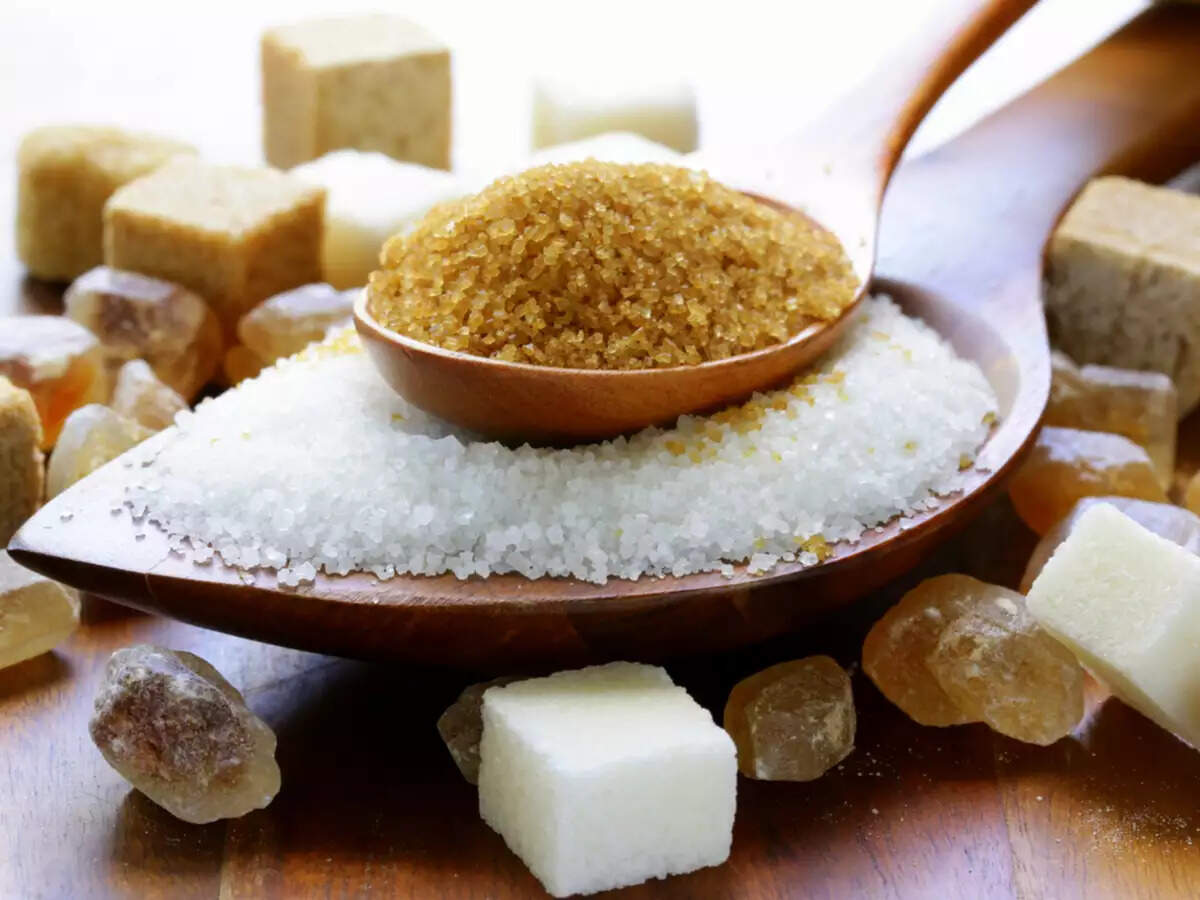[ad_1]

By Harika Palabatla
New Delhi: Sweeteners and sugar substances have been common in the diet of Indians, significant amount of us are sweet fetish and it has been an integral part of our culture. With the growing awareness of the ill effects of sugar, many people have chosen to switch to sugar substitutes, so that they don’t miss out on the essence of sweetness but also maintain their health. Sugar substitutes have become a new trend as a non-caloric additive to sweeten food and drinks, these substitutes are often marketed as healthy options for weight loss and decrease the risk of dental cavities, and diabetes when compared to sugar. Experts caution that adding to much sugar substitutes is no brainer.
Though sugar substitutes are low-calorie, the WHO 2022 report suggests that non-sugar sweeteners cannot be used to achieve weight control or reduce the risk of non-communicable diseases. Adding to that research, titled ‘Sugar substitutes: Health controversy over perceived benefits’. Sugar substitutes in various food and beverages are very popular in most of the countries. Extensive scientific research has demonstrated the safety of the six low-calorie sweeteners currently approved for use in foods in the U.S. and Europe (stevia, acesulfame-K, aspartame, neotame, saccharin and sucralose) each with an acceptable daily intake. A number of studies have been carried out to confirm the safety of artificial sweeteners. A number of studies have also shown the adverse effects of the same. But most of the studies have limitations such as effects shown only in animals, not in humans, small sample size, high doses, statistically non-significant or borderline significant, etc.
The sugar substitutes are thoroughly investigated for safety with hundreds of scientific studies and then approved by different regulatory authorities like the US Food and Drug Administration (US FDA), Joint FAO/WHO Expert Committee on Food Additives (JECFA) and Food Standards Australia New Zealand (FSANZ). Some agents are approved with warning labels too. So further exploration is required with well-designed large-scale studies in the general population. On the anecdotal evidence, it has been concluded that based on analysis of the database of case histories, there are a number of symptoms that are recurrently reported by individuals who believe that they are caused by sugar substitute ingestion.
Sugar substitutes safety
Sugar substitutes are of two types, natural sweeteners (sugar alcohols) and synthetic sweeteners (artificial sweeteners). Sugar alcohols are plant-derived products that contain sweetness from 25-100 per cent as compared to sugar, these include sorbitol, xylitol, erythritol, stevia glycosides, maltitol, thaumatin and brazzein. In addition to sweetness, they add some texture to food. Sugar alcohols intake depends on the body’s process, generally, they are not fully absorbed and digested by the body, so they result in less of an increase in blood sugar. Sugar alcohols are also beneficial for oral health. Unlike sugar, since they are not consumed by oral bacteria, they do not cause tooth decay.
Artificial sweeteners also called non-nutritive sweeteners (NNS) are synthetic sugar substitutes. They provide more intense sweetness and no or a few calories per gram, these include cyclamate, alitame, acesulfame potassium, sucralose, advantame, aspartame, and neotame.
Speaking on the health effects associated with sugar substitutes Dr Sonali Kagne, Deputy Consultant, Department of Endocrinology, Sir HN Reliance Foundation Hospital, Mumbai said, “The consumption of products sweetened with non-nutritive sweeteners (NNS) may have health effects, including favourable effects (eg, reduced risk of dental caries) and possible negative effects (weight, bowel function). In some observational studies and randomised trials, consumption of sugar substitutes [in the form of artificially sweetened beverages (ASBs)] is associated with adverse glycemic effects, including glucose intolerance, increased insulin resistance, increase in glucagon-like peptide 1 (GLP-1) release, and development of type 2 diabetes mellitus. However, in other studies, there is no evidence of any effect on glucose metabolism or a conclusion cannot be drawn due to low-quality evidence.”
The Food Safety and Standards Authority of India (FSSAI) has approved six artificial sweeteners, namely saccharin sodium, aspartame, acesulfame potassium, sucralose, neotame, and isomaltulose for use in food.
Sugar substitutes effects on diabetics, non-diabetics
Sugar substitutes offer the sweetness of sugar without calories, they are many times sweeter than sugar. Because of this, it takes only a small amount of these products to sweeten foods. Hence, sugar substitutes don’t affect blood sugar levels. But the other ingredients in foods consisting of sugar substitutes can still affect blood sugar levels.
Commenting on the effect of sugar substitutes on diabetics and non-diabetics, Dr Kagne said, “If a person with diabetes uses it to substitute the sweetness of sugar occasionally, it will be of great help as the person can enjoy that food item without significant alteration in his blood sugar level. However, it is not advisable to consume such food items injudiciously as ultimately it increases total calories consumed and may adversely affect blood sugar levels and other metabolic parameters. In persons without diabetes, these sugar substitutes can be used in overweight or obese individuals who consume a lot of sugar-sweetened products as a part of the weight management programme. But routine use of sugar substitutes should be avoided as it may have adverse health effects such as flatulence, diarrhoea, alteration of gut microbiota, may have adverse cardiovascular effects, may aggravate migraine may alter eating behaviour and promote weight gain”.
NNS and weight loss
Body weight depends on everyday calorie consumption along with the physical activity. An increase in calorie consumption and decreased physical activity is the most important factor leading to unwanted weight gain and central obesity. Non-nutritive sweeteners also called zero-calorie sweeteners are always portrayed as the healthy option to cut down the calories from the diet. Though non-nutritive sweeteners contain fewer calories when compared to sugar, overconsumption of these without any changes in physical activity or without any other dietary modifications will not help in weight loss.
Commenting on the effect of non-nutritive sweeteners in weight loss Shalini Arvind, Chief Dietitian, Fortis Hospitals, Bannerghatta Road, Bengaluru, said, “While it is evident that sugars give empty calories and nothing else, it is also true that total calorie consumed is not only from added sugars but also from the supersized savouries, fatty, fried foods and overly consumed foods. For that matter, even home-cooked food when taken in excess amounts (more than the requirement) in every meal of the day over years without sufficient physical activity makes one gain a lot of fat and weight. Only replacing the sugars with sweeteners will not help in any weight loss. There needs to be an overall lifestyle change where food is taken in a balanced manner emphasising all the food groups in correct proportions along with physical activities rather than just concentrating on a small amount of added sugars or artificial sweeteners.”
Healthy ways to alternative sugar intake
Sugar substitutes are used in a variety of different food products. Depending upon their chemical characteristics, some can be used as tabletop (standalone) sweeteners, while others are used only in industrial (commercial) food and food product preparation. Many commercially prepared products use a combination of different NNS. Eating whole fruits like apples, pears, and guava in a permitted amount is better and safer than consuming such food and beverages sweetened with artificial sugars.
Speaking to ETHealthworld, Dr Priya Palan Dietician, Zen Multispeciality Hospital, Chembur, said, “As a sugar alternative, sugar alcohols which are a type of carbohydrate found in foods that occur naturally in fruits and vegetables can be used. Dates can be used, but in moderation, because we cannot forget the calories that dates bring into the diet. Maple syrup can also be considered a part of the diet. Though these are healthy alternatives to sugar. These are not completely zero-calorie foods. So overdoing these will increase blood sugar levels.
In order to maintain a healthy lifestyle, the WHO advises limiting the intake of free sugars to less than 10 per cent of total energy intake is a part of a healthy diet. A further reduction to less than 5 per cent of total energy intake is suggested for additional health benefits
Cutting down or limiting sugar intake can be beneficial rather than alternating it. One may try to adapt and develop a taste for food without sugar rather than substituting it. Sugar substitutes are good alternatives but overconsumption and regular intake of these substances could have adverse effects on health.
[ad_2]
Source link
